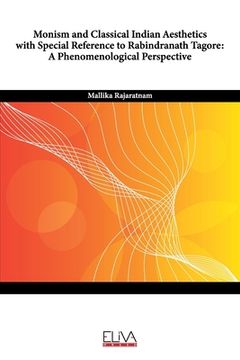Monism and Classical Indian Aesthetics with Special Reference to Rabindranath Tagore: A Phenomenological Perspective (en Inglés)
Reseña del libro "Monism and Classical Indian Aesthetics with Special Reference to Rabindranath Tagore: A Phenomenological Perspective (en Inglés)"
Rabindranath Tagore [1861- 1941] was a Universal Philosopher, poet, Novelist, Creative writer, music composer, painter, Educationist and a Scientist in a deeper sense. He explored universal classical Aesthetics through his versatile capacities. He was the first Asian to win the Nobel prize for literature- for his Gitanjali 1913. He was not only a poet, but also a great critic and he introduced deeper Asian values to the whole globe, while exploring the integration of classical values of Eastern and Western Traditions. One of the greatest sons of India, Rabindranath Tagore won the international admiration as Poet Philosopher and Creative writer he explored universal humanism and philosophy of universal aesthetics through his versatile genius. Each country contributes something essential to the world's civilization with their self-expression and India's contribution comes through her Universal Philosophy which has the uniqueness of oneness of all being and universal humanism. Tagore got his deeper meaning of universalism from the ancient Philosophical scriptures of India and the Philosophy of the Upanishads. In addition to this, he was influenced by many other sources such as Nature, Buddhism, Sufism, Christian Mysticism and the Classical Western Philosophy. Philosophy of the Upanishads and Indian Philosophy of Values and Aesthetics contributed extensively in shaping his Universal Humanism. This paper analyzes the integration of his Philosophy of Humanism and Aesthetics in his creative works as well as in his writings on Creative Unity, Towards Universal Man, Religion of Man, Personality, Religion of an Artist, Sahdana- the Realization of life etc... When a man touches this experience he becomes universal Man who transcends cast creed and nationality and he has no selfish end. Aesthetic expression, thus involves self-realization and since this is not individual fragmentary self, but the universal self. Tagore reconciles Absolutism and Theism, monism and pluralism idealism and realism in his unique philosophy of Aesthetics and the expression of Universal Humanism.

